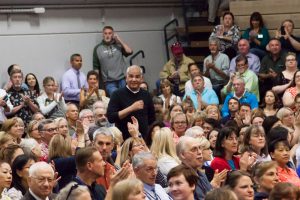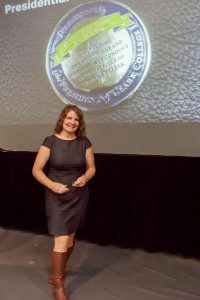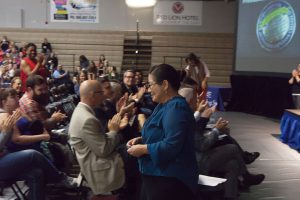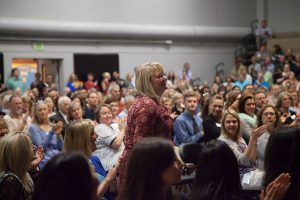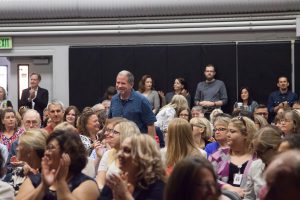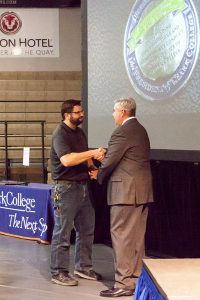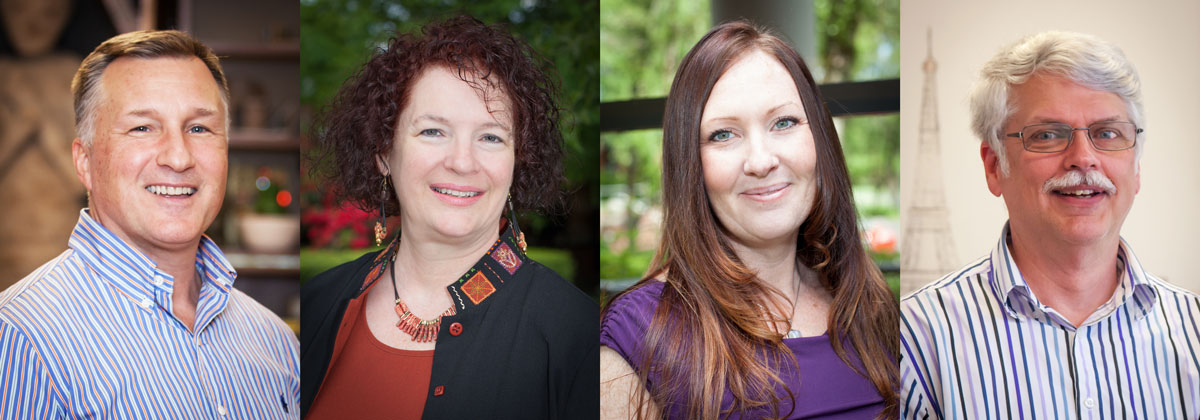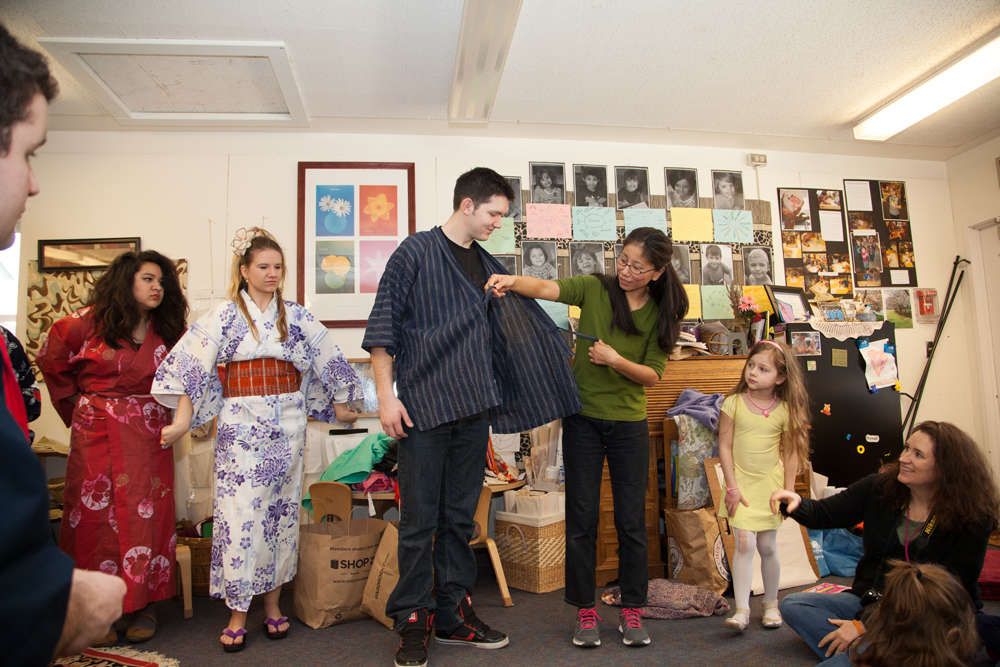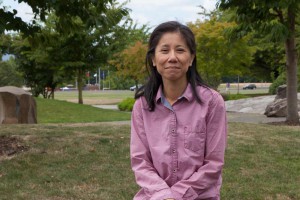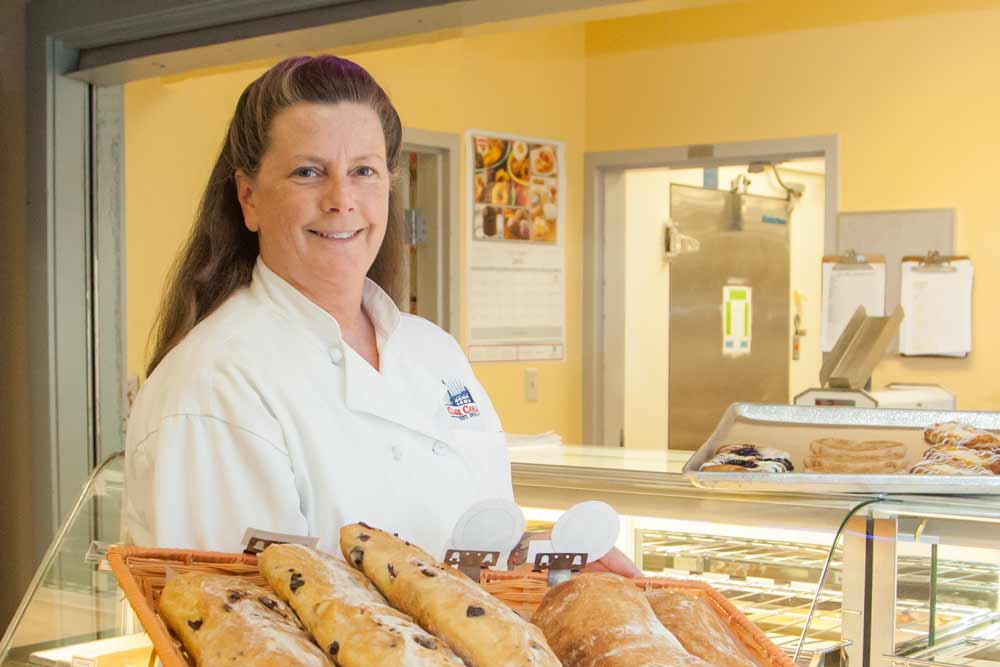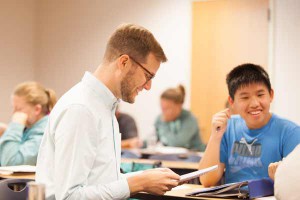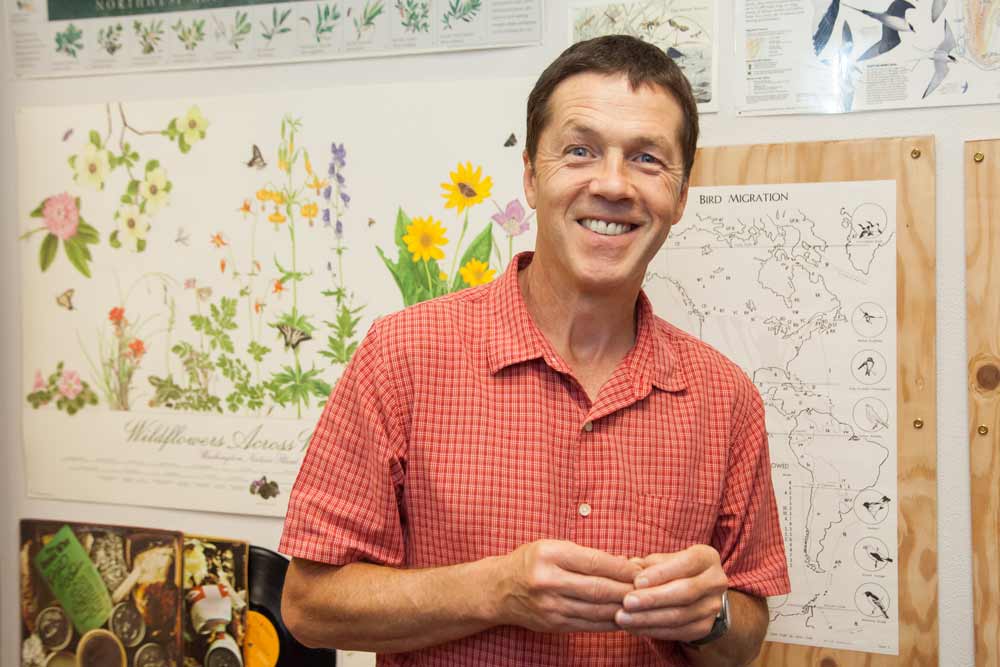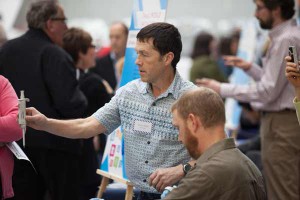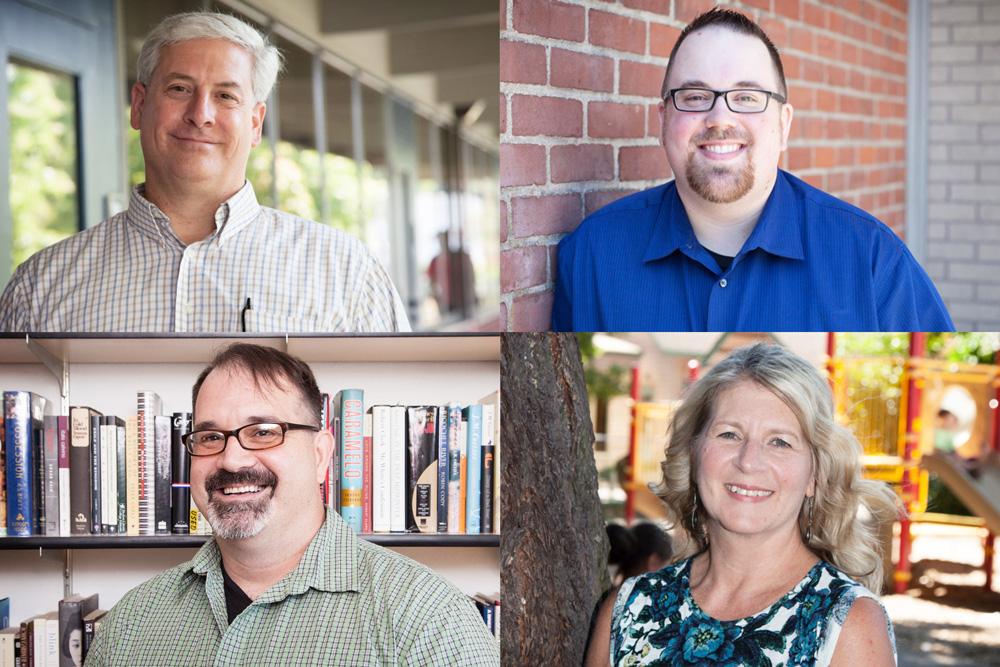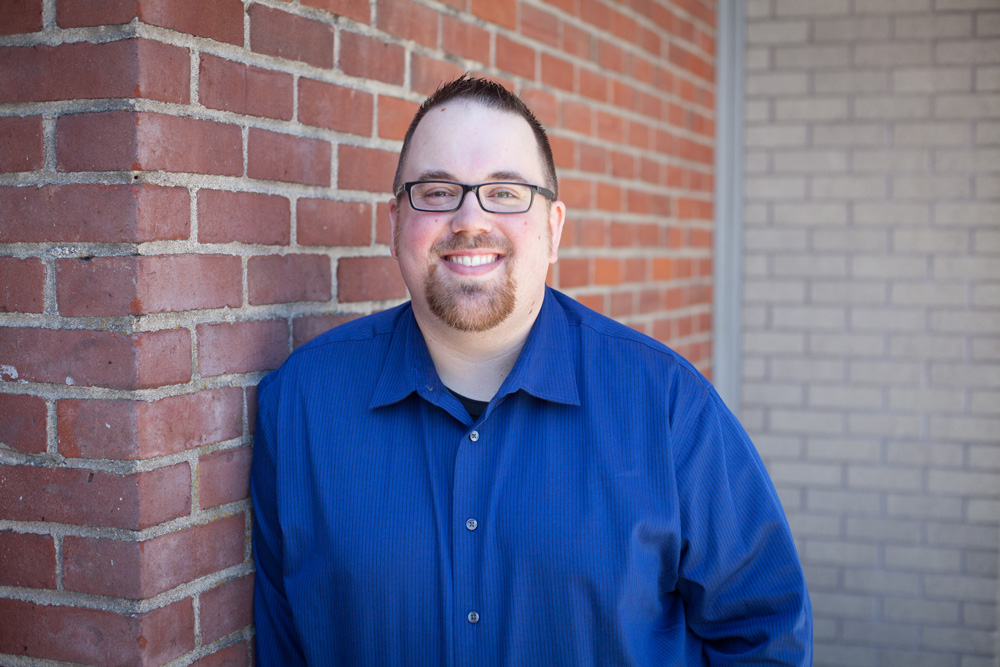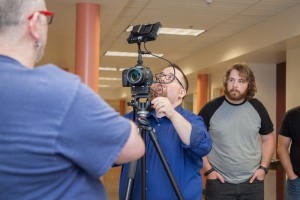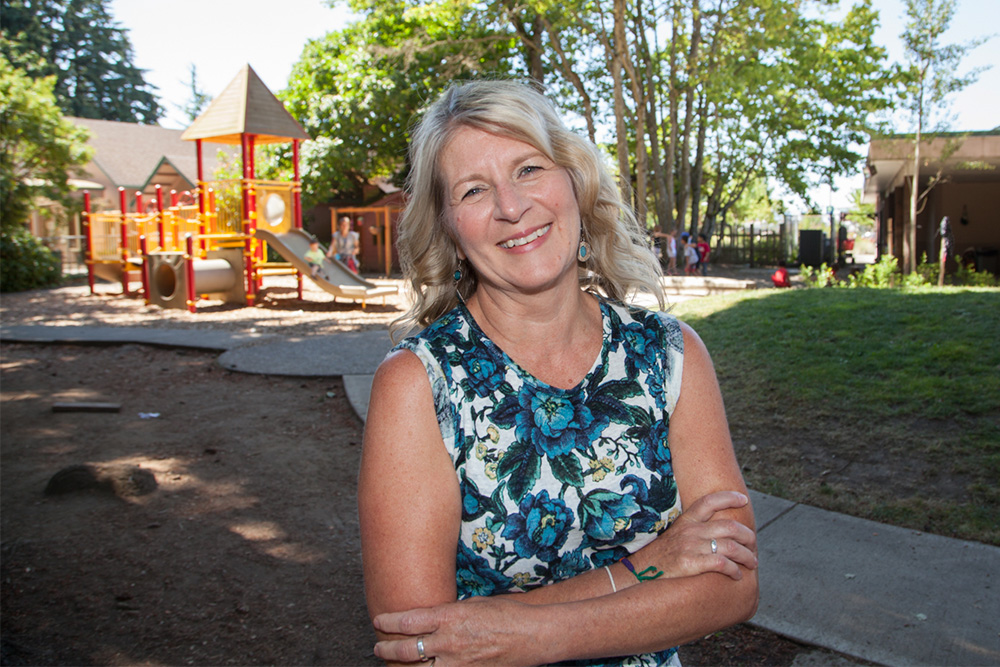Outstanding Employees
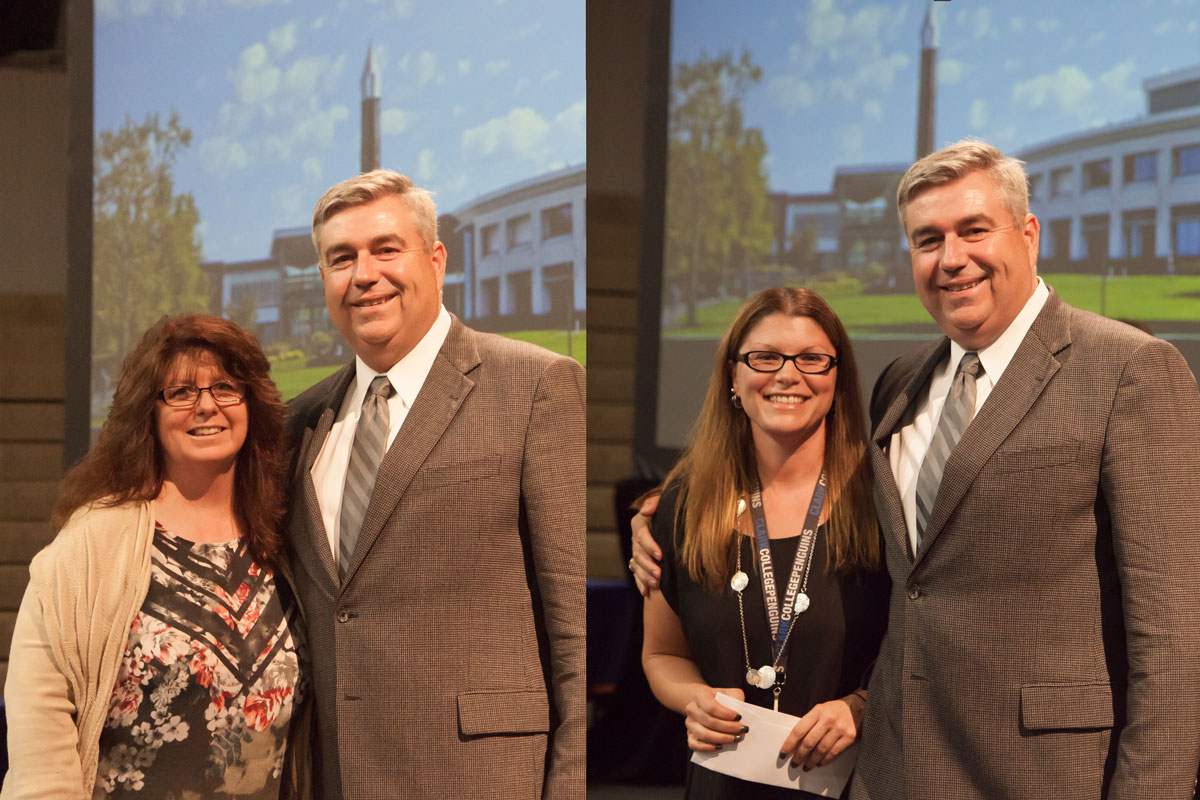
President Knight congratulates Linda Healy, left, and Vanessa Meyer on receiving the 2016 Exceptional Classified Staff Award.
Opening Day on Sept. 12 marked several celebrations of employee contributions to the college. Employees were recognized for 5, 10, 15, 20, 25, and 30 years of service to the college. Four employees–Facilities Services Maintenance Mechanic Michael Conder, ITS Specialist David Sims, Business Professor Patti Serrano, and eLearning ITS Specialist Scott Coffie–earned recognition for 35 years of service to the college.
Additionally, the recipients of the annual Exceptional Faculty Awards and quarterly Classified Staff Excellence Awards were recognized. The faculty awards are announced at Commencement and the quarterly Classified staff awards are announced each quarter. Additionally, two Classified Excellence Award recipients were announced to be recipients of the annual Exceptional Classified Staff Awards: Linda Healy and Vanessa Meyer.
Six Clark College employees received Presidential Coins during Opening Day. Introduced in 2007 by President Bob Knight, the coin is given to faculty and staff members who provide exemplary service to Clark students, the college and the community. The honorees are decided by the president and are kept secret until the names are announced–generally on Opening Day in the fall or during the annual State of the College address. The newest coin recipients are:
Adnan Hamideh
Originally joining Clark College in 2001 as a temporary business instructor, Dr. Hamideh received tenure in 2005 and now serves as the division chair of the Business Department. He holds a Doctorate of Education from Portland State University. President Knight called Dr. Hamideh a “tireless proponent” of the new Bachelor of Applied Science in Applied Management degree that Clark will begin offering this academic year. In addition, Dr. Hamideh has led the development of the Business Core classes that help students prepare for business majors.
Rebecca Kleiva
After graduating from Clark College in 2010, Kleiva was hired as a program coordinator in Eligibility Programs (now Workforce Education). She was promoted to her current position of program specialist in 2011. In this position, she has managed the Worker Retraining Financial Aid program, which helps support students as they transition into new career paths, and developed partnerships and strategies that have helped the program exceed its target enrollment every year.
“She has consistently performed her job duties with the highest degree of integrity and professionalism,” said President Knight. “She is an innovative thinker who continues to evaluate how she can improve processes and procedures to better serve her students. … Her knowledge and eagerness to learn things that are outside of her normal job responsibilities help to ensure that the customer service that she provides to the public, community partners, co-workers and students is exemplary.”
Felisciana Peralta
Felisciana “Felis” Peralta joined Clark College in 2008 as a Multicultural Retention Manager and was recently promoted to Director of the Office of Diversity and Equity.
“In her eight years at the college, she has been a strong advocate and partner on issues related to diversity and social justice, helping to create and support a supportive learning environment for our students,” said President Knight. “She is a champion of equity and inclusion and has played a vital role in the development of the college’s Diversity Plan, Social Equity Plan, and Diversity Center.”
Peralta sits on the Cultural Pluralism Committee, Academic Early Warning Committee, and the Incident Response Team at Clark. On the state level, she has been a leader of the Multicultural Student Services Directors’ Council and its annual Students of Color Conference. In June, she received the 2016 Val Joshua Award, recognizing her leadership in working towards eliminating racism and promoting peace, justice, freedom, and dignity for all people.
Brenda Shular
Brenda Shular graduated from Clark College in 1996 and was hired the following year as a purchasing assistant. She currently serves as a procurement and supply specialist in the college’s Office of Purchasing and Central Services.
“She is a rock-solid employee who manages an enormous amount of orders in Purchasing in a timely way and with great customer service,” said President Knight. “She’s played a key role in getting the STEM Building orders processed in time to ensure furniture and equipment is ready for the building’s opening.”
Mike Silva
Mike Silva graduated from Clark College in 2001 and was hired as a computer maintenance technician later that same year. He was promoted to an Information Technology Systems Specialist in 2002 and now serves as the supervisor of the Multimedia Department.
Last year, Silva led a collegewide effort to redesign the college’s standard classroom technology configuration. Working with faculty and staff, he developed a new design that not only provides additional teaching tools for faculty, but saves nearly $10,000 per classroom in equipment costs. He has also been part of the effort to make the college’s new STEM Building ready for students and faculty.
“Over the past 14 years, he has been in a variety of technical roles providing outstanding customer service and a calm, reassuring voice able to solve the thorniest technical problems,” President Knight said. “As the labs supervisor, he hired and mentored hundreds of student workers, preparing many for jobs and life after their graduation from Clark College. In mentoring these students, he clearly demonstrates that we all have a role to play in student success. … He is an outstanding supervisor, technician, and friend to many on campus.”
Caleb White
Caleb White joined Clark College as a tenure-track welding instructor in 2013 and received tenure in 2016. He holds an associate degree in automotive and diesel technology from Universal Technical Institute and previously worked at Christensen Yachts, where he helped build some of the biggest luxury yachts in the world.
“He has not been at the college for a long time, but he has already made an impact,” said President Knight.
White has worked to redesign the welding curriculum to include more hands-on learning that can be translated directly into the workplace. Each quarter, his students use their skills to create a project. Projects have included aluminum stools for students to use in the welding lab, a large pressure vessel that can be used on job sites, and an aluminum fishing boat that was a star attraction of the college’s display at the 2016 Clark County Fair.
Photos: Clark College/Jenny Shadley
